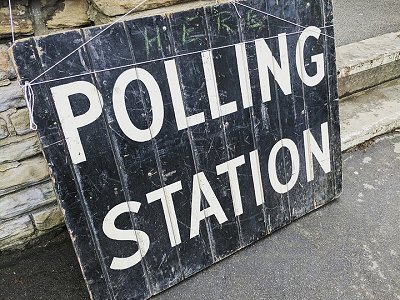
WHY VOTE?
There is one phrase a Christian should have in their mind as they enter the voting booth.
The statistics don’t look good on the face of it. In 1997, 71% of the electorate voted in the General Election, but only 61% in 2005. It is estimated that only 37% of 18-24 year olds voted then. Can we expect further dips in time to come?
We have grown very cynical of our political system. The most obvious recent cause is the expenses scandal, which has shown many MPs to be on the make and illuminated the gap between them as a class from those they are supposed to serve. Those guilty MPs who previously fulminated about wasting taxpayers’ money looked especially hypocritical but there were many MPs who came out of the scandal with their reputations enhanced – or at least they would have done had the media paid any attention to their probity.
Other causes of voter fatigue lie in the growing gap between promise and delivery in government. The incumbent government will more obviously pay the price for this but any future administration would do well to avoid hyperbole in power and the substitution of announcements for action. British people also have high expectations of the State (unlike the US where suspicion of central government is endemic) which tends to disillusionment when things go wrong in public services.
So why should we vote? This is a good question when we consider how likely it is that our vote will make a tangible difference to the outcome, which is about 30 million to one. Modern campaigning is focussed on swing seats at the expense of safe ones. In the 2008 US Presidential election it was hard to find any evidence of an election taking place in the States of California and New York, so sure were both Democrats and Republicans of how the east and west coasts would vote. All their money went instead on the undecided States. We can expect something similar in the coming General Election yet no-one can say for sure which seats will emerge as genuinely marginal until after the count, which furnishes us with an incentive to vote in most cases.
Each of the main political parties traces their thinking historically at least in part to Christian tradition. By contrast most people would draw the line at voting for a demonstrably racist party. If we are offended by divisive and hateful politics this is a stand alone reason for getting out to vote as it is the lack of such commitment among ordinary voters that gives these minority parties the leverage they need to gain council and parliamentary seats.
I would encourage Christians to have one phrase in their mind as they enter the voting booth: love God and love your neighbour as yourself. We show our love for God by voting because we are called to active citizenship and participation in public life so that the wider community might be blessed by our involvement. And when we choose our vote it should be with love both for our neighbour and ourselves.
There is always media commentary about whose interests a citizen should cast their vote for. Is it for themselves or the wider community? Some are insistent that, like the operation of the free market, people should vote for their own interests and in this way the common good will be reached. Others suggest it is selfish to vote for your own gain and that the onus is on choosing who would be best for the country as a whole. It is naïve to think that when everyone acts in their own interests this somehow magically benefits all. This is too convenient a philosophy. But neither should we discount our own interests. Loving our neighbours as ourselves means we should consider the good of the community before our own interests but that our interests have a legitimate role in the process also.
As we plan how to vote, we should think through the purpose of our common life. There are serious questions to be asked about our addictiveness to wealth and possessions and the inability of either to raise levels of personal happiness once these goods have reached a certain level in our lives, which as it happens most of us have now reached. The priority of economic growth over all other goals should no longer be assumed. There is a wonderful opportunity to think through the value of human relationships to our personal and collective well-being. It is why we are here. Wherever you hear politicians talking practically rather than just rhetorically about the importance of relationships in the near future, sit up and take notice. They deserve our attention.
POPULAR ARTICLES

Obama's Covert Wars
The use of drones is going to change warfare out of all recognition in the next decades.

Through A Glass Starkly
Images of traumatic incidents caught on mobile phone can be put to remarkable effect.

What Are British Values?
Is there a British identity and if so, what has shaped the values and institutions that form it?


